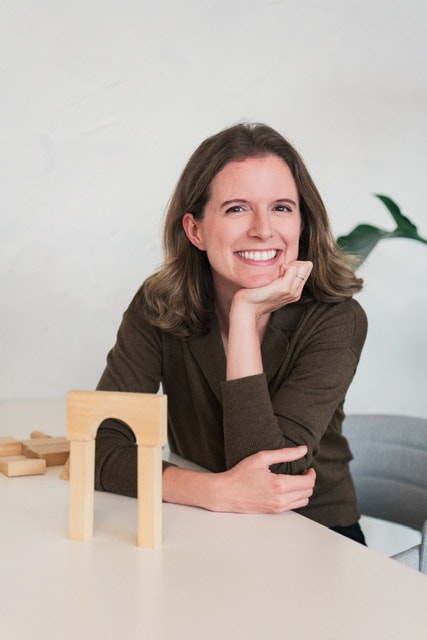Real Talk with Eleanore Hall: Parenting and Psychology
Date: July 11, 2025

Can you share a bit about your background and what inspired you to become a child psychologist?
I've always loved working with children. Even while pursuing a career in the arts after college, I couldn't stop babysitting because I wanted to be around kids. They are refreshingly straightforward when they're little; I love that they'll just tell you what they think. As a childcare provider, I was always interested in learning about families' parenting styles and reading the parenting books alongside them. It struck me as a tremendous privilege to be invited into a family and to be entrusted with their children's care. During that same time, I was moonlighting as a birth doula and fell in love with the emotional support aspect. That role, combined with my drive to be around children, made me take the leap of faith to leave a graphic design job and pursue a doctorate in clinical psychology.
Are there specific psychological strategies you regularly use at home? Could you give examples?
Absolutely! I often find myself using selective attention, or what I like to call selective engagement. For example, if one of my kids is whining, I'll wait until he's speaking in a neutral or calm way before responding. I like to call this "unplugging," and I plug right back in when my kids shift their behavior toward what I'm hoping to see. Another way I think about this is regarding word count: I try to keep my word count low in response to unhelpful behaviors and high in response to helpful ones. "Try" being the operative word!
I use anxiety-related strategies at home, too. My four-year-old son recently struggled with anxiety around swimming lessons. On the first day, all the other kids happily hopped into the pool when prompted by their teenaged swim teacher. The other parents chatted with each other on the sidelines, sipped their iced coffees, and caught up on emails. Meanwhile, my son refused to get in; I was crouched at the edge of the pool, practically begging him! I knew he was anxious, but his behavior looked defiant to everyone else, which did nothing to help my relentless blushing. I ended up pulling him out of the lessons so we could work him up to the comfort level required for group swim lessons. I implemented what we call a "fear ladder:" we went to the pool twice a week, and we started by just working on getting feet in the water. Three months later, and he's jumping in on his own without hesitation. It's really moving to see the effectiveness of these approaches in my own life. The highlight for me was when my son used some supportive language that he'd heard on repeat: at the top of a water slide, he shouted to himself, "I know you can do this!" It brought tears to my eyes to see how directly those supportive statements had become his self-talk.
Are there misconceptions about child psychology that parenting your kids has helped you understand better?
Great question. Gentle parenting is currently a popular approach, which is largely driven by parenting influencers on social media. There is certainly a lot of good in this school of thought, including emphasizing warmth and empathy. However, parenting my own kids has underscored what I learned in my training: that kids really need that love to be accompanied by limits. I've actually observed my older son act out and then ask for a limit on days when he's having trouble regulating himself. When delivered in a love context, those limits feel safe and containing.
Wrapping Up
There are many days in which I watch myself parenting and can't help but laugh. I know what's recommended, and yet real life can easily get in the way of using the strategies that I know might work. These moments help me empathize more deeply with other parents, enhancing the genuineness I bring to my work. Striving to increase our parenting skills is a great act of love, and using those skills is a lifelong project for us all!
In Closing
So there you have it! Even the so-called “experts” in parenting grapple with the same difficult behaviors and anxieties as the rest of us. Eleanore Hall’s story is a refreshing reminder that knowing the right tools doesn’t always mean it’s easy to use them, especially in the heat of the moment. Her honesty sheds light on an important truth: parenting is less about flawless execution and more about showing up.
What's on your mind today?